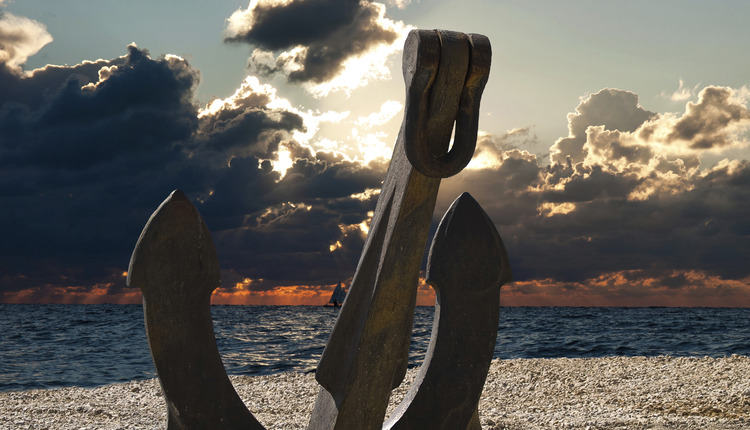
Many fitness professionals tend to be people of structure and entrepreneurial values. With such qualities, comes a common tendency that you may have experienced: The "Island Effect." Sometimes as a fitness business owner, it literally feels like you're secluded on your own personal island with no one to relate to.
If you become too comfortable, it can end up limiting your potential on a personal and professional level by causing you to anchor your mind. The challenge is this: how do we get off our island and grow? I will share with you my insights on how I was able to travel to Argentina for six months and double the success and reach of my fitness business while abroad.
Anchoring is a mindset that life has to look a certain way. Let’s consider its literal definition: Anchoring is a cognitive bias that describes the common human tendency to rely too heavily on the first piece of information offered when making decisions.
Anchoring yourself causes your mind to latch on to a certain perception of how your life has to be. In the sense of your career in the fitness industry, you probably have a vision of where you want to be in one, three or ten years from now. Having a vision is good, but the trick that we have to overcome is that of being the tactician instead of the visionary.
Obligating yourself to be the head tactician in your business should be code for "hand shackles." This happens to nearly all of us at one point or another. The key is to succeed without the shackles.
Identify what areas of your business that you feel the need to have a constant hand in, then assess from there. The truth is, some of the most successful fitness business owners have about three primary functions, that's it. The underlying point here is that anchoring should be used as a tool for pushing outside of your comfort zone instead of an excuse for getting comfortable.
Argentine case study
In the fall of 2014, I bought a $357 one-way ticket to Buenos Aires, Argentina with the ambitions of learning Spanish and dancing Tango. But when I stepped off my return flight in Miami nearly six months later, I had realized that I gained so much more than just dancing experience and a new language. The reason I was able to experience travel was solely because of the success and leverage of my fitness business. And because of this leverage, my business grew over 30% during the six months I was living in Buenos Aires.
The growth was the due to the identification of the 20% of the drivers in my business that were responsible for growth and only focusing on that 20%. Then, finding the proceeding 10%, so on and so forth. This method can and should be applied to every business model, both physical and virtual in nature.
Identifying your 20%
Identifying the crucial few drivers in my business was integral to winning my freedom and growing my business. Upon taking action, I quickly realized that the few activities that gave me the most satisfaction also happened to be those that were directly responsible for my growth. My specific drivers were:
- Writing on topics that actually mattered to me
- Connecting only with people that had a direct impact on my business
- Delegating 80% or more of the relative items that are indirectly responsible for growth
What if modeling this way of operation meant increasing your value to the world and transforming more lives. Would you do it? I encourage you to challenge yourself and ask, "why not me?"
That's right, why not you? Your story will be unique and the world traveler model is just one of literally thousands of possibilities. Just remember: whenever you think that you have exhausted all of the options, you have not.
Jason Klein is a Certified Strength and Conditioning Specialist and is the Founder of Body of Purpose, Fitness Mentorship Company. You can read more about Jason's 25-Million Transformation Mission at www.BodyofPurpose.com










